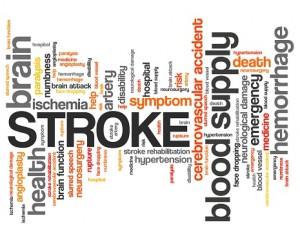Lose Weight > Common Sense To Lose Weight > Common Sense Article > Three Common Eating Disorder Treatment Options
Three Common Eating Disorder Treatment Options
Getting Immediate Care
The most urgent aspect of getting treatment for eating disorders is the physical side. Although the root cause is not physical, they can be fatal. Malnourishment is not the only health risk associated with eating disorders. It is also important to be aware that weight is not necessarily an indicator of health; someone with anorexia can be slightly overweight. You also need to take other underlying health concerns into account when assessing the physical dangers. Some of the more serious side effects are heart attacks, strokes, electrolyte imbalance, liver failure, muscle wastage and in some cases a torn esophagus from vomiting. It is essential to deal with these physical problems before dealing with the mental issues, as there are many fatalities associated with these disorders.
Admitting the Problem
While eating disorders have extreme physical consequences, they are actually mental in origin. The physical impact is only a symptom of the underlying problem. They are a kind of addiction, and like any kind of addiction, the biggest battle is admitting that you have a problem so that you can start dealing with it. The two most common eating disorders are Anorexia and Bulimia; they are caused by distorted body image, telling you that you are fat and will be happier if you can lose weight. The desire to lose weight becomes an obsession until the physical problems begin to arise. One of the biggest challenges sufferers face is admitting the problem to themselves, admitting that they distorted image they have of themselves is incorrect so they can begin to break the cycle. Most of the time, it will take a trained medical professional to help them break this cycle of obsession.
Receiving Ongoing Treatment
Ongoing treatment for eating disorders is in depth and varied. Counseling will be necessary in order to promote healthy body image. It is often important to find a trigger too; it may be a symptom of yet another mental problem such as depression and these disorders are almost always linked with low self esteem. Dealing with these ongoing psychological issues must happen in conjunction with physical care, ensuring that the sufferers eat normally and do not attempt to purge their bodies afterwards. It may be necessary to have a period of residential care where the sufferer will learn new healthier habits which they can take back to their normal life.
These three steps are vital for overcoming eating disorders. Seeking medical help is always the first step; don't attempt to control some ones eating disorder alone if you aren't a trained professional.
Related Articles
-
Is Fasting Actually Healthy? What Science Can Tell Us
-
The Fastest Online Weight Loss Diet Program
If you want to loose your weight fast then you must follow any of the
-
Lose Extra Pounds With The Strongest Fat Burners To Get A Sleek Body
Diet pills are getting more and more popular these days. This is
-
Using Hypnosis For Weight Loss - Everything You Need To Know
You may tease me for telling you that a hypnotherapist will help you l
-
Fruit Smoothie Anyone?
This week I want to mention something th
-
Keeping A Weight Loss Journal
Trying to lose weight successfully can be a very overwhelming task.
- DON'T MISS
- Be Consistent to Be Successful
- Burning Fat in the Cubicle
- Weight Loss Goals - Top Fitness Program
- Your Daily Commute Might Actually Help You Lose Weight
- Burn Fat Gain Muscle Diet Here Are 10 Great Tips
- Tips For Completely Natural Weight Loss
- Tire Of Struggling With Keeping Weight Off? Learn Successful Weight Loss Here!
- Why Moderation Doesnt Work For Me
- Lose Weight With a Diet Solution Tailored to Your Needs
- How I Beat Obesity and Insulin Resistance in Ninety Days




